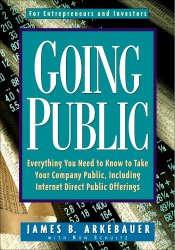BITSians on Wall Street
By Anupendra Sharma (’87 Eco Instru), Sandeep Mukherjee (’95 Phy Mech)
In his classic book, “Liar’s Poker”, Michael Lewis described Wall Street as being a street with a river at one end and a graveyard at the other. He says that those who work there will end up in one or the other.
I am thankful to report that our investigations did not uncover anyone headed even remotely in either direction. Every few years there is a major shakeout on the Street, but right now there is a heady optimism, as the Street recruits in record numbers to keep pace with business.
Wall Street is physically no longer the centre of America’s high finance that has been written and captured in books, magazines and film. The Street is steeped in history, which makes for great reading, but not for 21st century architecture needed for the world’s most powerful financial corporations. In recent years, much of that action has shifted to Park Avenue in Midtown where spanking new buildings have come up. Morgan Stanley, Lehman Brothers and Bear Stearns have all built brand new facilities.
The world’s most powerful hedge funds have moved even further afar to Greenwich. As the world’s trading goes electronic, and much of the trades pulse below the city, completing billions of transactions in the blink of an eye, the New York Stock Exchange, sitting proudly on Wall Street, will disappear in the future.
Wall Street is critical to America’s future. The US capital markets are the most efficient in the world, which allows capital to move rapidly throughout the system. The ability to invest in companies, liquidate as necessary, and trade in small quanta, allows capital to move rapidly within the system. Without Wall Street, America would not been able to rapidly take advantage of new technologies, trends, and create productive, efficient companies.
On an early fall morning, if you stand at the 4/5/6 subway stop, you can see financiers go about their business, their dark suits in sharp contrast to the fluttering American red and blue flags and the early morning golden rays of the sun slanting through the tall grey buildings. Inside the Stock Exchange, the bell rings and America opens for business.
Investment Banking
Pfizer buys Warner Lambert for $84 billion. JPMorgan buys BankOne for $60 billion. Teva buys Ivax for $7.4 billion.
As corporate growth slows and markets grow more competitive, buying seems to be an easy way to take on the competition. With cheap financing, multi-billion dollar hedge funds and stalled stock markets, these prices appear low. Mergers are hot on the Street, and Investment Bankers are working long hours to provide deals and financings.
Investment Banking is a narrow definition typically used on the Street for advisory and financing work.
 Investment banks are financial institutions that provide a wide range of services that includes advisory, financing, sales, trading, research, money management and private wealth management. Investment banks are financial institutions that provide a wide range of services that includes advisory, financing, sales, trading, research, money management and private wealth management.
High profile mergers are the bread and butter business of the world’s largest Investment Banks such as Goldman Sachs, Citigroup and Morgan Stanley These firms help companies execute mergers & acquisitions transactions by advising their clients on the valuations, taking them through a due diligence process, and negotiating the terms of the agreements that are needed to buy a company.
Beyond advisory work, investment banking also includes the sale of securities to raise equity and debt. When a company goes on a road show to meet investors, and files for an IPO or a debt loan, Investment Bankers work round the clock to ensure that these companies can raise capital from the markets.
 BITSians have worked in investment banking at the big firms (known as bulge bracket) such as Goldman, UBS, JPMorgan and Citigroup, as well as the boutique and mid-sized firms such as Thomas Weisel and Piper Jaffray. BITSians have worked in investment banking at the big firms (known as bulge bracket) such as Goldman, UBS, JPMorgan and Citigroup, as well as the boutique and mid-sized firms such as Thomas Weisel and Piper Jaffray.
There are three BITSians currently working in Investment Banking in the US. Sumeet Kanwar (‘87, Wharton MBA) is an Executive Director in Healthcare M&A at UBS in New York. VP Rajesh (‘87, Michigan MBA) is a Principal in Technology M&A at Thomas Weisel, San Francisco. Anuraag Agarwal (‘93, Dartmouth, Masters in Engg. Management) is a generalist Vice President at Berenson & Company, a boutique investment bank in New York, executing M&A, private placements of debt and equity, and restructuring transactions.
Investment Banking is usually divided into Product and Coverage Groups. Product groups include M&A, Leveraged Finance and Private Placements. Coverage groups include Telecoms, Healthcare, Financial Services and Real Estate. While product bankers work with a wide range of companies, they are typically execution specialists who deliver products to their clients. Coverage bankers are focussed on understanding sectors, and building a rolodex of contacts with CEOs and CFOs at a number of organizations.
 Investment Banking is a very interesting, but physically gruelling job. Junior bankers (all the way up to Vice President and Principal) work most weekdays and weekends. This is because deals typically need to get done during very short windows. M&A has a high degree of confidentiality, so it needs to be done fast. Initial Public Offerings require bankers to create prospectuses, prepare management, then go on the road with clients, meeting and educating top fund managers to buy into the stock at the time of offering. Debt deals are generally shorter, but have a similar marketing requirement. There are many other hybrid financial products which also get created and sold by investment bankers to investors through the sales arm of the bank. Investment Banking is a very interesting, but physically gruelling job. Junior bankers (all the way up to Vice President and Principal) work most weekdays and weekends. This is because deals typically need to get done during very short windows. M&A has a high degree of confidentiality, so it needs to be done fast. Initial Public Offerings require bankers to create prospectuses, prepare management, then go on the road with clients, meeting and educating top fund managers to buy into the stock at the time of offering. Debt deals are generally shorter, but have a similar marketing requirement. There are many other hybrid financial products which also get created and sold by investment bankers to investors through the sales arm of the bank.
Multibillion dollar deals can be completed in small periods of intense activity where timing is everything. Missed windows of opportunity can kill deals and lose millions in fees for bankers. It is a high stress job.
VP Rajesh loves the work. “As a mergers and acquisition banker, I work mostly with advising technology companies about their strategic alternatives. The goal is to negotiate best terms for a client in a given situation and execute the transaction.” VP says that he enjoys numbers, analyzing situations and sometimes, “getting to see the Wall Street Journal headlines before everyone else.” His most memorable moment in banking was on a hostile acquisition, where his team broke up an announced deal with another party.

Sumeet Kanwar’s work at UBS reflects the thought about creating the headlines. He worked at Wall Street’s #1 Healthcare investment banking group, where UBS was the advisor to Ivax, one of the world’s largest generic pharmaceutical firms on its $7.4 billion public acquisition by Teva Pharmaceuticals.
Investment Bankers build skills in project management – orchestrating a large group of people to a conclusion – including lawyers, tax experts, accountants as well as business team members. Bankers also develop a very strong understanding of finance and accounting. But as Anuraag Agarwal says, “the work is more about personalities and deal skills than numbers, which is what makes this work really exciting. You need to be able to understand numbers but effectively use the numbers to convey your message and argument – the numbers are just a means, not an end.”
As bankers get more senior, the focus shifts from executing and processing transactions, to bringing in business. This is a very important function at the boutique and smaller banks, who may need to work harder to attract business versus some of the larger banks.
People who work in investment banking need to develop strong skills in communications, negotiations, creating presentations, building very large and complex financial models, as well as working long hours on multiple projects, many of which will fail.
Entering investment banking requires one to demonstrate a strong passion, and interest. It is important to get to know a lot about the deals done by the investment bank, its culture, many people who work there, even before the first interview is conducted. These are sought after jobs. The hours are long – and it may be tough to balance family life with work. It is certainly not for everyone – many bankers burn out. I know of many Indians who opted out once they had children because they did not want to make the tradeoff between work and not seeing their kids.
VP Rajesh developed a gradual interest in Finance. At his first job at Citicorp Overseas Software Limited (COSL), he wrote software code for mutual funds accounting system. This exposure was very fascinating to him and drew him closer to the field of finance. After his MBA at Michigan, he joined JPMorgan Chase. After a few years in New York, he moved to Deutsche Bank in San Francisco to focus on Technology M&A., He joined Thomas Weisel earlier this year. He says “Growth banks like TWP are best suited to address the advisory and capital market needs of technology companies that are too small for bulge brackets to bank”. He also jokes that banking was also the quickest way to pay his MBA loans.
 Anuraag also advises to look at India. There has been a lot of development in the field of investment banking in the last five years in India. Besides the capital markets, there has been a considerable amount of mergers and acquisitions activity in India. The financing markets (both from a public and private perspective) are maturing and the distressed markets are also developing. Anuraag says “ Investment banking as a profession is not as commoditized in India as it is in the West. It is an exciting time to be an investment banker in India right now and will be in the near future.” Anuraag also advises to look at India. There has been a lot of development in the field of investment banking in the last five years in India. Besides the capital markets, there has been a considerable amount of mergers and acquisitions activity in India. The financing markets (both from a public and private perspective) are maturing and the distressed markets are also developing. Anuraag says “ Investment banking as a profession is not as commoditized in India as it is in the West. It is an exciting time to be an investment banker in India right now and will be in the near future.”
Advice From Anuraag Agarwal (BITS ’93) On Investment Banking
Firstly, investment banking and other similar careers on Wall Street are mainly apprenticeship oriented – it is not about being super brilliant in solving differential equations. You need to have a good work attitude and be willing to learn. Further, you need to be able to be a good salesperson. There has to be more than just academic brilliance in your personality if you want to move ahead. Do not expect to come on Wall Street and achieve academic fulfillment (trust me I rarely use more than 2% of my gray cells!). However, if you are willing to put your head down and learn a trade, go for it!
Street Stress
A career on The Street is exciting and rewarding. But, it is not for everyone. The Street is infamous for big egos that go with the enormous pay checks. It is also a cyclical industry with a hire & fire mentality. Investment Banks are notorious for over-hiring and then over-firing every five years. The last sizeable round of layoffs took place between 2000 and 2004, where entire divisions were decimated. It affected Indians in unusually large numbers. Some were out of work for up to three years, eventually getting back in when the market turned. Most people who on the Street are driven, ambitious, intelligent and talented. They are survivors. Careers are made or broken on the backs of single trades or deals. The pressures are enormous. Higher risks bring higher returns. But you have to be tough. |
Second, try to obtain an internship in the financial sector before deciding you want to pursue a career in investment banking. Try to get as much information as you can. Do not be swayed by the glamour – the sheen goes away very quickly when you have to routinely work for more than 100 hours per week and have no time to spend with your family. Ask yourself what kind of a person you are. What you want to achieve professionally. What your innate motivations are. An internship will help you answer many such questions.
Third, talk to alums or other people in investment banking. I hate to use the term networking, but try to build as many relationships as you can. Do not call them for a job – but call them to gain some perspective.
Finally, remember that you start with a clean slate when you start working. Your history at college, the 10.0 (or the 2.0 GPA) and all the extra curricular activities means nothing if you can’t deliver at work. Again, you have to have a good work attitude, put your head down and be ready to learn. Every year is a needs to be started afresh!
|

